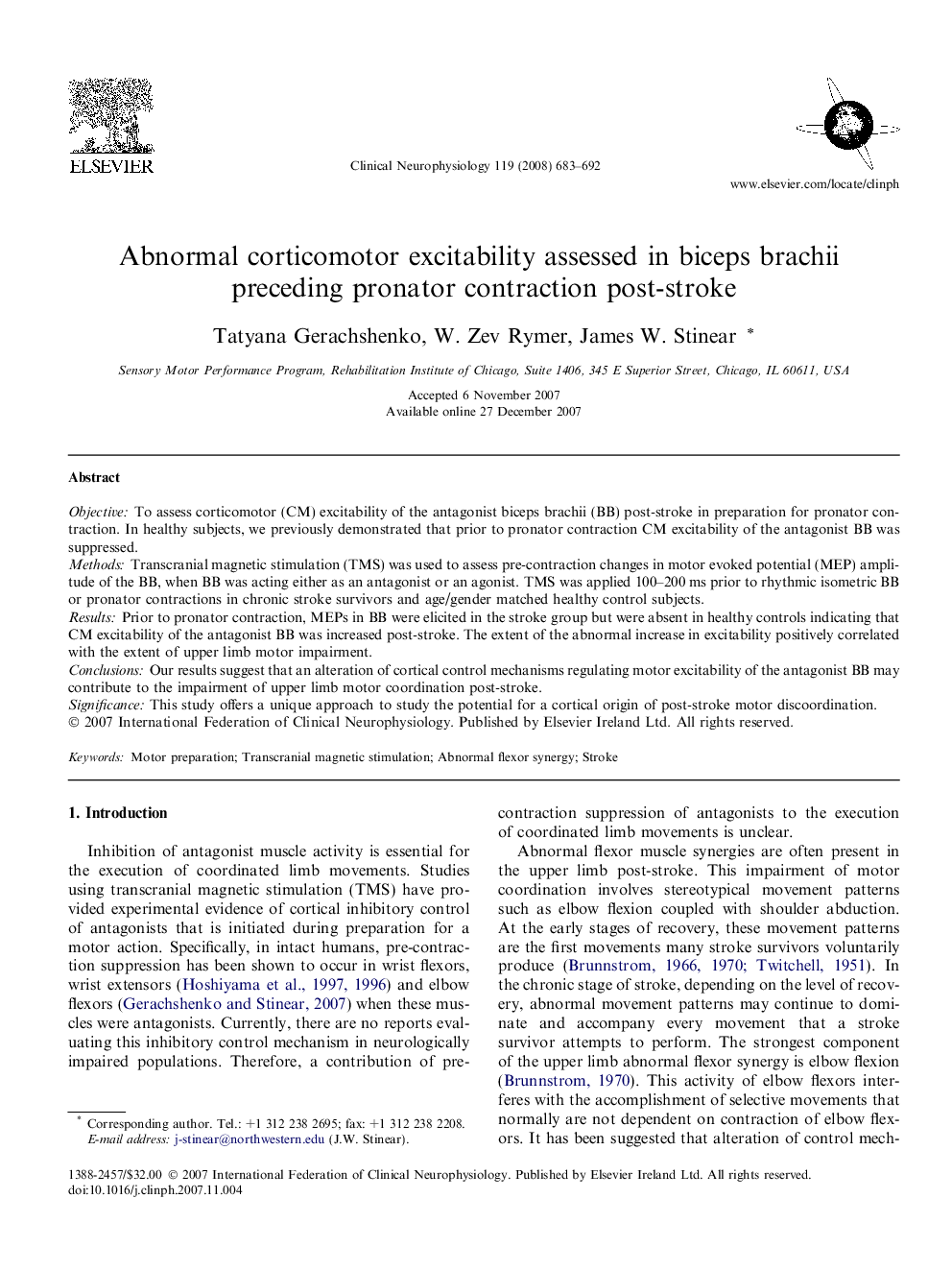| Article ID | Journal | Published Year | Pages | File Type |
|---|---|---|---|---|
| 3046603 | Clinical Neurophysiology | 2008 | 10 Pages |
ObjectiveTo assess corticomotor (CM) excitability of the antagonist biceps brachii (BB) post-stroke in preparation for pronator contraction. In healthy subjects, we previously demonstrated that prior to pronator contraction CM excitability of the antagonist BB was suppressed.MethodsTranscranial magnetic stimulation (TMS) was used to assess pre-contraction changes in motor evoked potential (MEP) amplitude of the BB, when BB was acting either as an antagonist or an agonist. TMS was applied 100–200 ms prior to rhythmic isometric BB or pronator contractions in chronic stroke survivors and age/gender matched healthy control subjects.ResultsPrior to pronator contraction, MEPs in BB were elicited in the stroke group but were absent in healthy controls indicating that CM excitability of the antagonist BB was increased post-stroke. The extent of the abnormal increase in excitability positively correlated with the extent of upper limb motor impairment.ConclusionsOur results suggest that an alteration of cortical control mechanisms regulating motor excitability of the antagonist BB may contribute to the impairment of upper limb motor coordination post-stroke.SignificanceThis study offers a unique approach to study the potential for a cortical origin of post-stroke motor discoordination.
